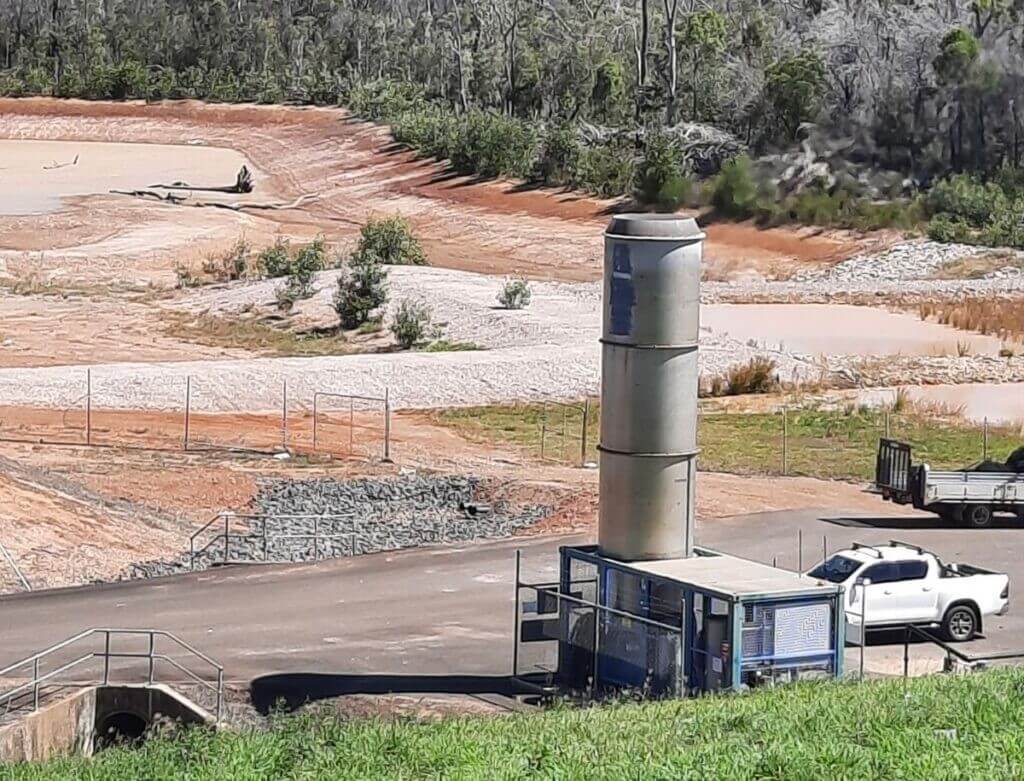
Bundaberg Regional Council - Landfill Gas Management Project
With Queensland’s commitment to reaching net-zero by 2050, one local government has been implementing innovative carbon reduction projects through landfill gas management. For the last decade, Bundaberg Regional Council (Council) has contracted with LGI to implement innovative gas management systems within their Cedars Road and University Drive landfills, substantially decreasing their carbon footprint. With Council and LGI extending their contract for another decade, we look into how this prosperous relationship was founded and how you can do the same.
In 2013, Council entered a decade long contract for the design, installation, operation and maintenance of an extensive gas collection network and gas flare at Council’s Cedars Road and University Drive landfills.
With the previous contract coming to an end, Council commenced an extensive procurement process to procure a contract to continue and expand Council’s landfill gas management. Following an extensive tendering phase, LGI once again proved successful, entering a further decade long contract to maintain and operate their existing facilities and expand the landfill gas collection network to other landfill sites.
These multiple large-scale energy from waste projects utilise landfill gases to generate energy by recovering and beneficially using biogas from landfill sites. The process improves air quality, reduces greenhouse gas emissions and contributes to the local economy.
Success to date
Council and LGl’s relationship so far, has proven to be prosperous, with the key outcomes of the infrastructure including:
- 785,000 tonnes reduction in carbon emissions, which equates to planting 13.1 million seedlings for the next decade or removing 19,788 cars off the road per year;
- 82.7 million m3 of biogas captured; and
- 362,000 Australian Carbon Credit Units generated.
Design Build Operate Maintain Transfer (DBOMT) Model
Following Council’s procurement process, project documents for the bespoke Design, Build, Operate, Maintain and Transfer (DBOMT) contract model were prepared. The collaborative arrangement with LGI recognised and documented Council’s key requirements, detailed below:
- ensure zero-capital cost to Council to establish and maintain the new gas collection networks, gas flares, and gas engine;
- ensure zero-capital cost to Council to operate and maintain the existing gas collection networks, gas flares, and gas engine;
- incorporate specific mechanisms for the marketing and sale of carbon credits and electricity generated, including a value-share mechanism;
- prioritise the local provisions of goods and services and local industry participation;
- adopt best practice and available gas collection and gas to energy generation technologies that meet performance, environmental and safety expectations;
- ensure a collaborative and purposeful management approach between Council and LGI to enable both parties to benefit from the project investment.
Benefits to Council
The project has instigated the development of a delivery model that suits Council’s budget, whilst allowing leveraged investments, expanding Council’s capabilities and creating new local jobs. Other benefits include:
Environmental Resilience
Increasing Bundaberg’s environmental resilience is a key driver for this project. Preserving the Bundaberg Region’s natural environment is a priority for Council with the area just the second destination in Queensland, and the fifth in Australia, to receive ECO Destination Certification. With landfill gas emissions contributing up to 80% of local governments carbon footprint, landfill gas management has been identified as integral to this reaching this goal. Council’s success to date in emission reduction has clearly demonstrated the need for Council to continue their landfill gas management initiatives. Council has already achieved their goal of effectively increasing the Bundaberg regions environmental resilience, improving air quality, reducing greenhouse gas emissions and contributing to the local economy. By continuing this project and expanding the networks Council will continue to achieve significant results in reducing the regions carbon footprint.
Community Engagement
The transition to a more environmentally friendly economy is continually gathering pace and like many Councils, Bundaberg is always looking for ways to continually improve its environmental impact and protect the community from potentially harmful landfill gas by-products. So far, the project has had significant impact
on improving the air-quality of the region, taking potentially harmful methane gas— the natural by-product of organic materials breakdown—and converting it into carbon dioxide, which is about 28 times less harmful to the region.
Project efficiency
In addition to the project requiring zero-capital cost, Council benefits from engaging a provider to maintain and operate the facility for the future. With the provider recovering their costs through the operation and maintenance phases, the provider is incentivised to efficiently and effectively deliver the project and meet the
best performance outcomes. By incentivising the Provider, it provides a near guarantee that the Provider will operate and maintain the infrastructures optimally to ensure the production of high returns.
Zero-capital cost
Projects such as Landfill Gas Projects, often require large upfront capital costs to establish the project. Through structuring the project to have zero-capital cost or zero upfront costs, it significantly frees up funding for Council to invest in other projects which cannot be structured in this way. Additionally, through the structuring of this relationship, Council will experience partial returns from the project over its lifetime without investing significant funds into the Project.
Can DBOMT work for your Council?
Besides landfill gas management services, DBOMT and similar contract models can cater for a wide range of projects and procurement activities. The DBOMT model is direct, effective and best used where Council has specific goals, a specific scope of work, and knows exactly what they require. Best suited for arrangements between 5 and 30 years, there are numerous benefits for Council adopting to use the DBOMT project delivery model, including:
- zero or minimised capital cost;
- developing more innovative solutions through collaboration between Council and the Provider;
- integration of the latest technological innovations and accessibility to design plans; increasing the quality of the assets and the efficiency for projects; increasing the involvement of local industry providers and goods and services suppliers;
- engaging with industry experts; and
- developing a tailored maintenance plan that anticipates and addresses needs as they occur.
The DBOMT contract model can be applied in various ways depending on the type of project and specific project outcomes required, including:
- DBOM (Design Build Operate Maintain)
- DBOT (Design Build Operate Transfer)
- DBLOT (Design Build Lease Operate Transfer)
How can we help
Muscat Tanzer can assist your local government with advice and strategic direction as to which project delivery model will best suit your local government’s project goals, including:
- assisting with the preparation of a suitable procurement plan and project delivery model;
- assisting with the preparation of procurement and market approach documentation, including expression of interest and/or tender documentation;
- probity advice and services;
- reviewing and updating the Specification and Tender documents to ensure they are consistent with and work cohesively with the contract;
- providing advice to ensure the best project outcomes for the local government;
- drafting the DBOMT contract to ensure both the project infrastructure and successful tenderer will:
- meet or exceed performance guarantees;
- comply in all respects with the local government’s requirements, laws, and best industry practice;
- act consistently with the overriding requirement in the operation and maintenance phase; and
- assist the local government in the negotiation and amendment of the contract.
Please contact any of our highly experienced procurement, contracting and probity advisers if you wish to discuss this article, or for assistance with your next project.












